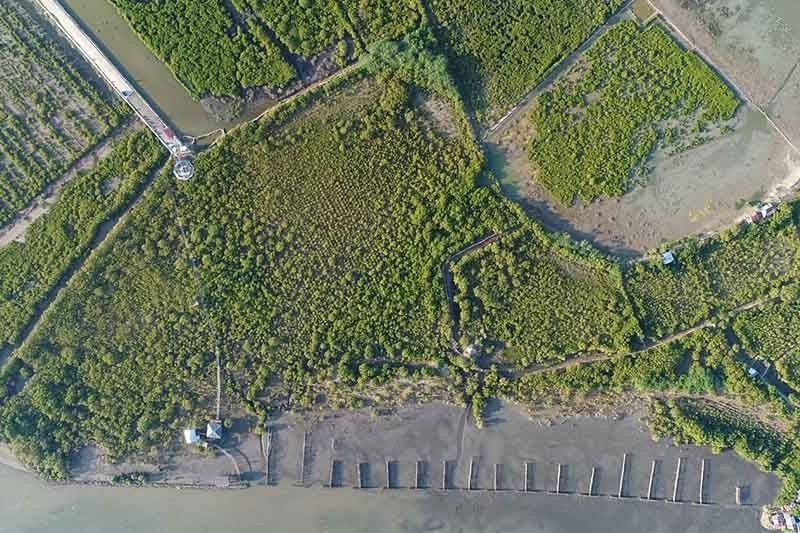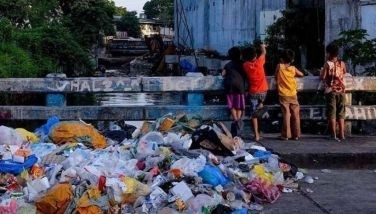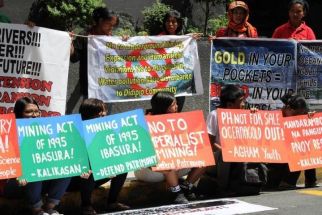DENR to assess abandoned fishponds for mangrove restoration

MANILA, Philippines — The Department of Environment and Natural Resources (DENR) will assess abandoned, undeveloped, and underutilized (AUU) fishponds to identify potential areas for mangrove restoration.
Environmental organizations and scientists have been calling on the government to revert all abandoned fishponds into mangrove forests, which are crucial in the fight against climate change because they serve as natural barriers to storms and absorb planet-heating carbon.
A document signed by Environment Secretary Maria Antonia Yulo-Loyzaga on February 26 but was only released to the media on Wednesday ordered the immediate assessment of AUU areas in Bicol region, Western Visayas, and Zamboanga Peninsula.
The order seeks recommendations for two types of reversion. The first objective is administrative reversion, which involves returning control of AUU fishponds to the DENR from the Department of Agriculture-Bureau of Fisheries and Aquatic Resources (DA-BFAR).
The second objective is biophysical reversion, which focuses on restoring the ecological state of abandoned fishponds by transforming them back into mangrove forests through replanting, enrichment planting, and assisted regeneration.
Regional field assessment teams will gather data such as topographic, fishpond, mangrove and flooding maps as well as DA-BFAR data on areas issued with fishpond lease agreements (FLAs) that are abandoned, unused and underdeveloped.
Teams will conduct ground validation to assess the profile and biophysical status of identified areas, and consult with civil society organizations, academic institutions and local government units.
Following the assessment, a regional technical working group (TWG) will recommend areas for administrative and biophysical reversion. These recommendations will then be forwarded to the national TWG for review and final approval by the secretary.
Annadel Cabanban, country manager of Wetlands International Philippines, called the DENR order a “huge milestone.”
“For years, we’ve been struggling to restore mangroves in AUU fishponds due to issues on the lack of data on the location, size, and pond tenure,” she said in a statement sent to Philstar.com.
“The recent order of the DENR, using modern technology, helps untangle some knots in the process of AUU pond reversion to mangrove forest,” added Cabanban, who also serves as the lead convenor of the Global Mangrove Alliance Philippines.
Conservationists earlier raised concern the Philippine Salt Industry Development Act—the new law to boost the country’s struggling salt industry—could result in the conversion of fishponds into salt farms.
Wetlands International Philippines said the law would increase salinity levels in disused fishponds, making it difficult to revert AUU fishponds into mangrove forests.
More than half of the Philippines’ extensive mangrove ecosystems, estimated at 450,000 hectares in 1918, have been lost primarily to fishpond conversion and other coastal development projects.
- Latest


























